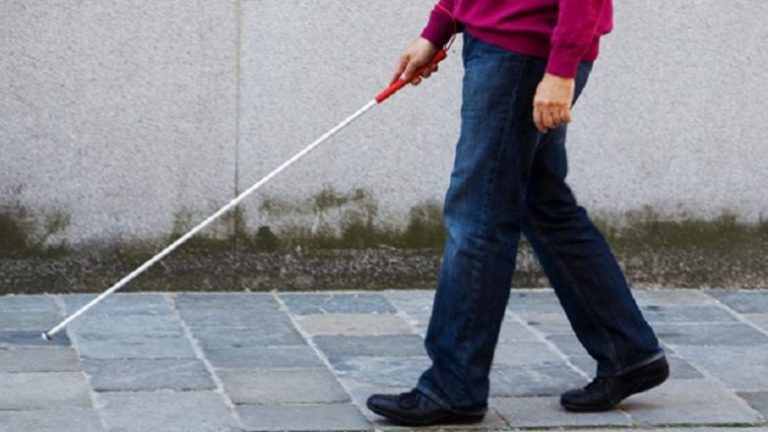Most of the people offer their services for pay, some others do this willingly and without any compensation.
Majlinda Haziri, 19 from Vushtrri, student at the Department of Journalism at the University of Prishtina “Hasan Prishtina”, made a decision to help her blind colleagues. It`s the second year she does this with enjoyment.
“As a freshman I assisted L.D, a completely blind girl. She was a third year student at the University of Prishtina (UP), whereas now I assist another girl M.S a UP student as well. She`s got problems only with one eye, she can see with the other, though not very well”, Haziri says.
She assisted L.D for an entire year during her studies; at the department, at the cafeteria, since they were also roommates at the dormitory. She used to spend a lot of time with her, and that made her learn even more about people with disabilities.
“I haven`t been aware at all of what blind people are capable of. In addition, I had the opportunity to meet L.D`s friends, who were also blind. They were even in worse condition, but both of them work and provide for their families. They are very hardworking and when they talk, they motivate you and you forget they`re not able to see”, Majlinda tells.
This year is a bit easier to her since the girl she accompanies is not entirely blind. On the other hand, she gets help from her sister, who accompanies her friends Arife Morina and Majlinda Uka.
“My friends helped me a lot and they did everything voluntarily. When I wasn`t around, I knew L.D or M.S were in safe hands and they could help them with everything and be nearby”.
Majlinda takes M.S everyday to the department, waits until she finishes the lectures, and at times set, goes with her to the cafeteria. She doesn`t care that this at times takes away her time for studying or rest, since she`s helping someone in need.
M.S told us that Majlinda has helped her a lot all along, and that they are close friends.
“We hang out very much with each other. She helps me get to wherever I need. I think there are a lot of humane people, and I hope that such volunteering will always exist”.
Bujar Kadriu, the principal of Kosovo`s Blind`s Association (KBA) says that he is aware that a number of students have helped their blind peers in several ways.
“As an organization, we didn`t interfere in this particular case, and we don’t interfere. There are membership procedures to follow if they want to become an active part of volunteering, and all these are individual acts that each citizen is entitled to…”, Kadriu says, welcoming this gesture by students.
Majlinda Haziri, while not being a member of KBA, still took this job willingly through contacts with her friends who had done the same thing. She says she would think of becoming a volunteer through an association only if she wouldn`t be able n her own to find a person to assist.
Meriton Alija, a student at the Department of Psychology at the University of Prishtina, also speaks about volunteering. He met a blind fellow student, whom not only himself, but his friends, as well assisted all along.
“We lived in the same dormitory… I wasn’t there all the time, but assisted him when needed, mostly getting him to the department and returning to the dormitory, but also on other occasions”, Meriton says.
He also points out what he learned while accompanying a blind person.
“They are capable of achieving everything; they can tell bills, sizes, and shapes. They can understand you through your voice; they can understand your physical built 90%. They are very clever at discovering people`s personalities… Even their touch is especially developed. When they touch, it is as if they were able to see”, he said. Meriton and the person he used to help today don`t live in the same town, but he says that he would helped him again, if they did.
Kadri from KBA, that now numbers around 5,000 members, says that he hasn`t thought of opening a specifically profiled office for supporting volunteers who express their willingness to help in this way, “but we welcome all the positive actions”.
Doruntina Stojkaj








